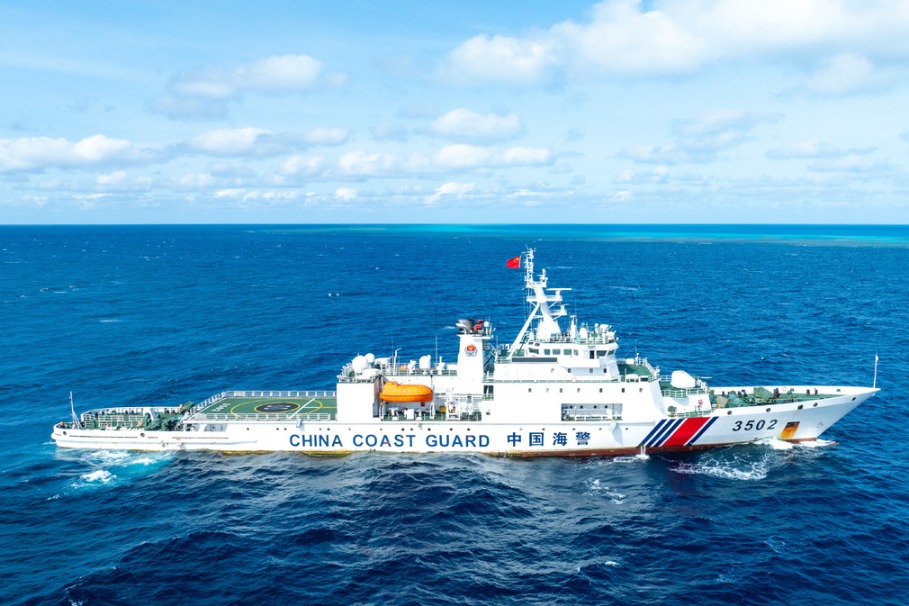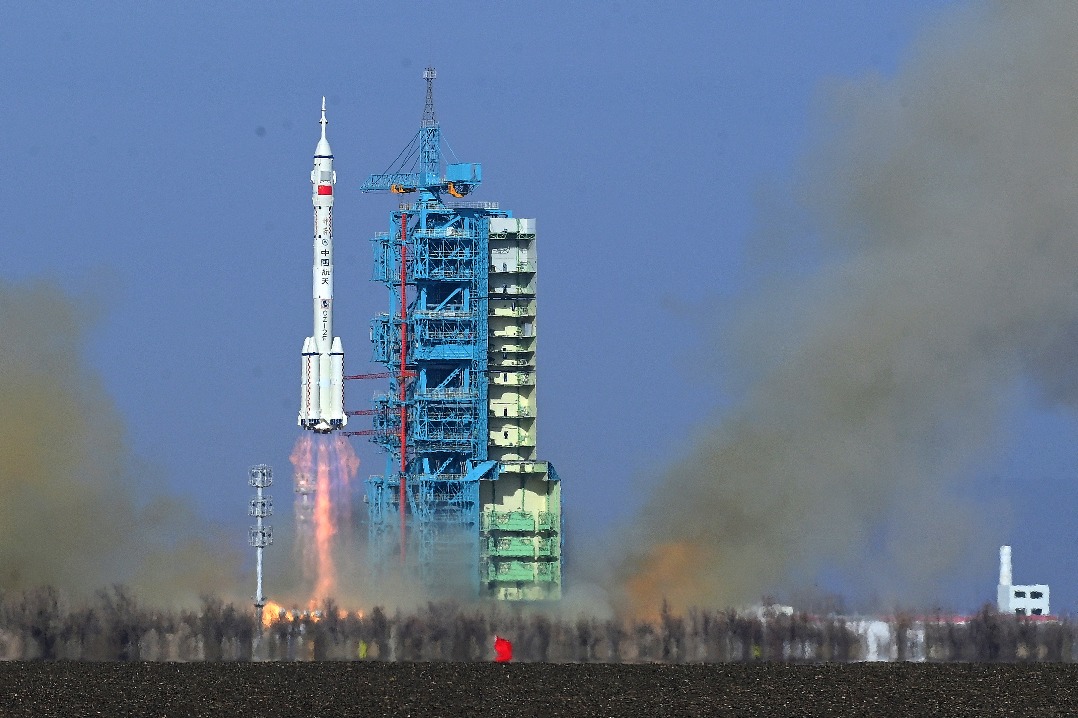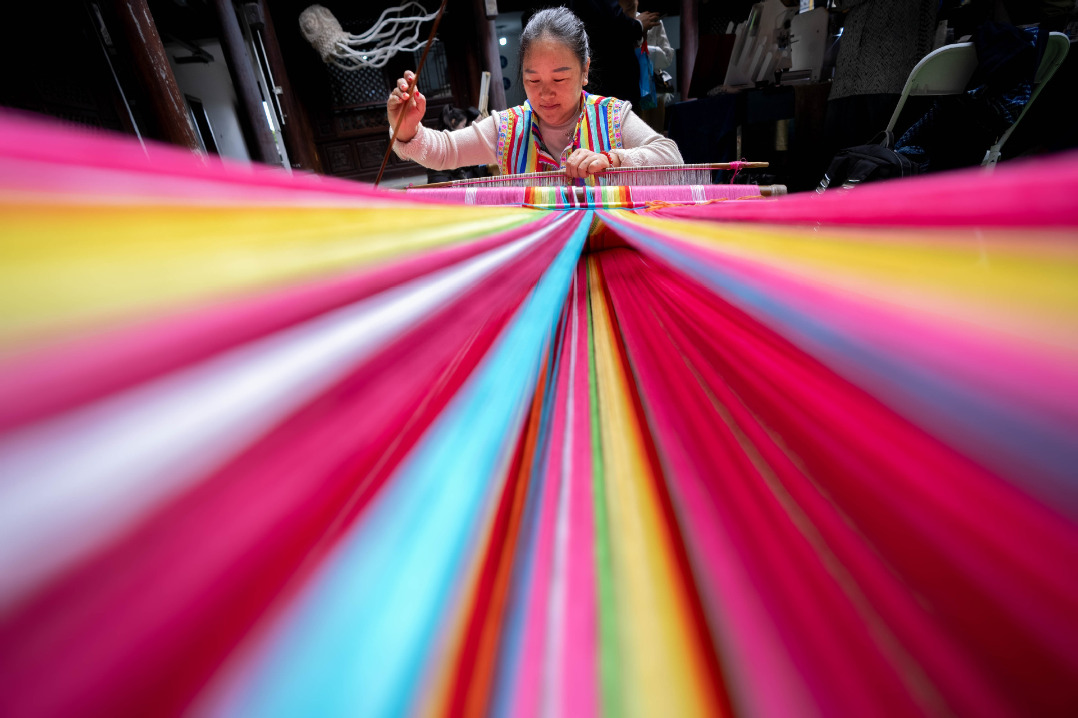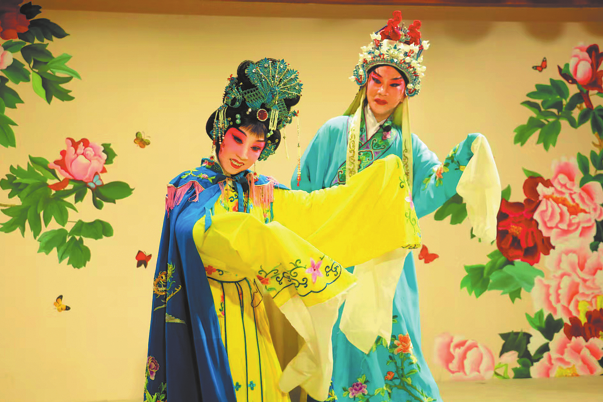Tea traditions infuse strength into bonds


Tea makers from across the Taiwan Strait gathered at Wuyi Mountain in Fujian province in November to establish the Fujian-Taiwan Concentric Tea Garden, a symbolic gesture of reunion and cooperation.
The mountain is the birthplace of black and oolong tea.
The event highlighted the shared cultural heritage of the two sides, centered on tea, and participants tended the soil in a ceremony marking a new chapter in cross-Strait tea exchange and collaboration.
Tea professionals from both sides plan to set up platforms to share tea variety cultivation and processing skills, and to deepen cultural identity through hands-on tea picking and production experiences.
Tea cultivation has long served as a bond between Fujian and Taiwan. During the Qing Dynasty (1644-1911), when Taiwan was administered as part of Fujian province, a scholar from Lugu township named Lin Feng-chi traveled to Fujian for the imperial examinations. After passing the exams, he returned to Taiwan with oolong saplings from the Wuyi Mountain area. The plants thrived in the Tung-ting area and, through generations of cultivation and craftsmanship, developed into the highly regarded Tung-ting Oolong tea known today.
Lin Chi-chang, a tea professional from Lugu township in Nantou, Taiwan, and a descendant of Lin Fengchi, took part in the November event. "What our ancestor brought back to Taiwan was not just a few tea saplings, but the very seeds of Chinese tea culture," he said.
Tea remains a key link connecting Fujian and Taiwan, supporting personnel exchanges, agricultural cooperation and trade. The 17th Cross-Strait Tea Industry Expo, held in Wuyishan in November, featured a record 200 booths in the Taiwan pavilion, a 14.3 percent increase from the previous session, organizers said.
Li Ya-chun, a fourth-generation tea maker from Taiwan, attended the five-day expo with his father to network and explore cooperation opportunities with mainland companies.
"This is our first time attending the expo," Li said. "Ninety percent of the guests who sit down for a chat are mainland business people and tea enterprises, which gives me a quick way to understand local trends and business models."
Li is from Lugu, the home of Tungting Oolong. While the region's soil and climate offer ideal growing conditions, the plants trace their origins to Wuyi Mountain in Fujian.
"I often hear my Taiwan peers talk about Wuyi Mountain tea, so I came to the source — the most authentic place — to learn about the tea and its brewing methods," he said.
He added that his parents often visit local tea farmers to exchange knowledge and have even experimented with creating a fusion tea using Wuyi varieties processed in the Taiwan oolong style.
Lai Yueh-tchien, a cross-Strait current affairs commentator, said teas from both sides share the same roots and craftsmanship but have developed distinct flavors over time.
"Tea is more than just a leaf; it is a vehicle that carries cross-Strait homesickness, memories and emotions," Lai said. "The atmosphere among tea professionals gathered here is very pleasant."
During the expo, a gala in Wuyishan blended traditional tea heritage with modern stage technologies to showcase the deep kinship across the Strait. To promote tea culture, some 80 tea professionals from both sides participated in a five-day field trip in Wuyishan that included stays in tea-themed accommodations, tea-infused cuisine, tea-themed opera performances and tea-related dance lessons.
Contact the writers at zhangyi1@chinadaily.com.cn
- Tea traditions infuse strength into bonds
- Xi Focus: Xi takes China to forefront of global climate governance
- Museums showcase shared Chinese identity
- New horned toad species discovered in South China
- Hohhot's new 4F-class airport completes test flight
- China will deepen energy cooperation with Russia: vice-premier





































